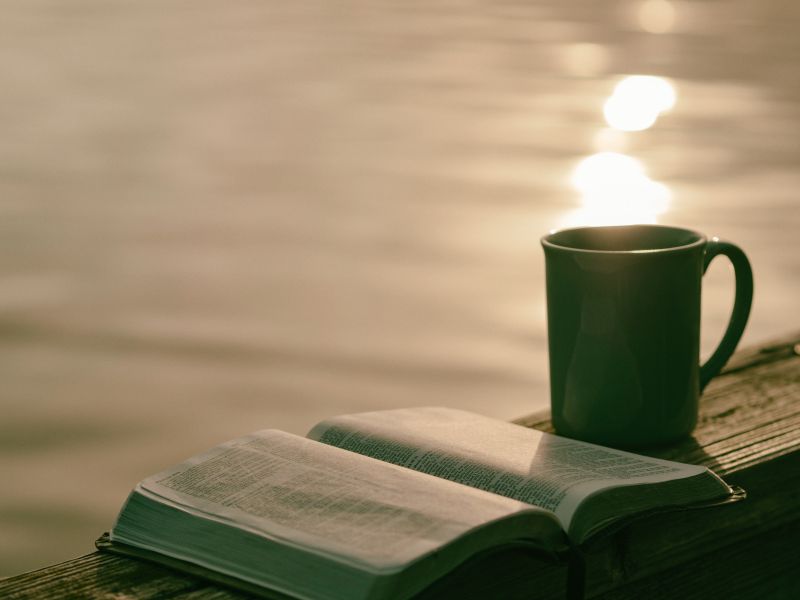西双版纳英语导游词1
Hello everyone, welcome to the beautiful Xishuangbanna! I'm your tour guide Tina! In the next few days, let me lead you into this beautiful and sacred oasis!
Yunnan Province is located in the southwest of China. In this colorful country, there are 26 ethnic minorities. There is an oasis at the southernmost end of the city. In other parts of the Tropic of cancer, there are vast deserts. However, there is only such a unique scenery about Xishuangbanna. This is the beautiful and magical Xishuangbanna! Yunnan There is also the world wonder of "Three Parallel Rivers" [Jinsha River, Nujiang River and Lancang River]. Lancang River is a tributary of the Yangtze River. One river passes through six countries [China, Laos, Myanmar, Cambodia, Vietnam and Thailand]. Lancang River is also the mother river of the people of Banna. Jinghong City, the capital of the prefecture, is divided into two districts, Jiangnan and Jiangbei. There are three state-level ports in Banna, namely the South and North Mohan port, guanlei port and Jinghong port!
Xishuangbanna has one city and two counties [Jinghong City, Mengla County, Menghai County], with a total area of more than 20000 square kilometers! It was formerly known as Cheli "Cheli", later as "Mengbi", also known as "city of dawn", and later as "Xishuangbanna"! In our Dai language, "Xishuang" means 12, and "Banna" means Bazi, that is, 12 Bazi There are 13 ethnic minorities in Xishuangbanna Dai Autonomous Prefecture, one third of which are Dai, one third Han and one third other ethnic minorities!
Now let's introduce the Dai family. Don't underestimate the Dai people. It has a history of more than 1300 years. They have their own language, characters and many other things worth watching. The Dai people also have their own new year, which usually lasts three to seven days in the middle of April every year!
On the first day of dragon boat race, at night, all the men, women and children gather by the Lancang River to put out Kongming lantern and Water Lantern. Everyone will write down their wishes and names. They will go down the river and fly with the wind, hoping that their dreams will come true. On the second day, they will go to the market. All the people gather in man to listen, especially lively. There are all kinds of Hawking sounds! On the third day, too It's the Buddha Bathing ceremony. In the streets, no matter men or women, old or young, they will hold a basin or bucket to pour happiness water on you.
There is a very old legend about this. It is said that a long time ago, there was a demon who occupied the beautiful and rich Xishuangbanna. Here, he did all kinds of evil deeds. People hated him to the bone, but no one could subdue him. They could only hold him in their hearts and dare not say it! He had seven wives, all of them were robbed, all of them were cruel to him, but they had no way to take him, among them, the little sister seven The girl is the most beautiful and intelligent. One day, she discussed with her sisters, and finally decided that she couldn't fight him hard. Let's get him drunk by using the beauty trick, and then set up his words, and then make the next plan. As expected, the plan was held as scheduled. The devil was drunk, and said his shortcomings. There was a red hair on his head. The seven girls took advantage of the evil When the devil was drunk and asleep, he pulled off his hair and strangled the devil's neck. Without much effort, the devil's head fell off. However, once the head was put on the ground, the ground would be full of fire. Seven girls held the head and did not dare to put it down, because he knew that once it was the common people who would be injured, the other six girls would keep splashing water on her, hoping to wash away her body Filthy, I hope the disaster can pass. Finally, the emperor will live up to those who want to. Her head will no longer burn, and seven girls will not. In order to commemorate the girl who has done harm to the people, this day is called the water splashing Festival, also known as the Buddha Bathing Festival. It is known as "splashing through one's body, happy life"!
There are also many stories of Dai people, such as "mumnuna and zhaoshutun", "Lotus Princess nabohan" and many other folk stories, which our ancestors told us when we were very young. In the next few days, Tina will tell you one by one. The Dai people live in a bamboo house with bars. The first floor is uninhabited. It is used to place crops and raise livestock. The owners live on the second floor. Such a house is warm in winter and cool in summer. The Dai people are a Buddhist people. They believe in Theravada Buddhism. From childhood, Dai boys have to be sent to Buddhist temples to receive education. Only when they grow up can they return to the secular life If you don't go, you can't get a wife, just like if Han people don't go to school, others will laugh at him for being "uneducated".
Because it is said that men don't wear women, Dai people have achieved that there are Buddhist temples in their villages, and every family has Buddhist temples. Dai people also keep their doors open at night, because they are very conscious. So, next I'll teach you a few simple Dai language! When boys see a girl, they call her "Sao Duoli", which means beauty. So when we girls see a boy, we call him "cat Duoli", which means handsome.
Well, our destination is almost here. Let's talk about our itinerary and precautions for tomorrow. We're going to Xishuangbanna Dai garden and Menglun Botanical Garden tomorrow morning. Because it's rainy season, you'd better take an umbrella with you if you have an umbrella. And then you'd better remember to take sunscreen, because the ultraviolet radiation in Banna is unforgiving, and then it's big Home can wear thin T-shirt and small underpants, because tomorrow will be a little hot, the temperature is 21-36 degrees Celsius, there will be showers, but it's OK, Banna East rain, West stop. OK, the destination is here. You can get off. Be careful!
西双版纳英语导游词2
Xishuangbanna is located in the south of Yunnan Province, covering an area of about 20000 square kilometers. There are more than 10 ethnic groups living in Xishuangbanna. Among them, the Dai nationality has the largest population and is the Dai Autonomous Prefecture. As a scenic resort, Xishuangbanna has its own characteristics. The ethnic minorities living here basically retain their own unique culture and customs. Here people can see the colorful headdresses and skirts of Dai and Bulang people, the bamboo buildings they live in and the bamboo rice they eat
In the middle of April every year, the Dai People's new year's festival, the water splashing Festival. During the festival, whether in bamboo buildings, villages, streets or highways, whether men or women, young or old, passers-by, there are lively water splashing activities everywhere. Some of them are carrying washbasins, some are carrying buckets, and they are splashing water with each other's hands. Everyone is drenched. According to local customs, this means washing away the dirt on the body with water, eliminating disasters and getting happiness. In the days of water splashing Festival, people also enjoy singing, dancing, drinking and feasting. Going to Xishuangbanna to participate in the water splashing Festival has become a very attractive tourist program
Dai bamboo house is a kind of castles in the air with bamboo and wood structure. The area is quite large. The whole pavilion is supported by dozens of large wooden columns, and the floor is made of bamboo. The downstairs is open on all sides, not inhabiting people, just piling up sundries and raising livestock. People live upstairs. The roof is covered with a very thin flat tile, and its shape is very similar to the hat worn by ancient people. According to local people, this is Kongming hat. It is said that Kongming layer taught the local people rice in those years. In order to commemorate him, the local people designed the roof of the bamboo building as Kongming's hat
In addition to enjoying the scenery of tropical rain forest, you can also appreciate the style of exotic trees and grasses, such as Gypsophila, Mimosa, Wangtian tree, Alsophila spinulosa, curculiaria, Hercules, wanglian, traveler banana, mysterious fruit (tree), big Bangen of Sishu tree You can also watch the scene of "fish in a hurry". You can meet peacocks and take pictures with wild elephants
The water splashing Festival is the most solemn festival of the Dai nationality. It is held in the middle of April every year, that is, the first month of the Dai calendar. Water splashing Festival is the Dai new year. Festivals generally last three to ten days. The first day is called "Mai Ri" in Dai language, which is similar to the Lunar New Year's Eve. The second day is called "Chari" (empty day) in Dai language. The third day is the new year, which is called "Ba Wang Ma" (meaning the beginning of the year). People regard this day as the most beautiful and auspicious day. In the early morning of the festival, the whole village dressed up to visit the Buddha in the Buddhist temple and built a pagoda in the temple. On the top of the tower, there are several bamboo schools wrapped with cloth and colored paper. People sit around the pagoda, listening to Buddha chanting scriptures and explaining historical legends. Young men and women go up the mountain in groups to pick wild flowers to make a flower house. At noon, the women each picked a load of water and splashed it on the Buddha to wash the dust. Then, men and women, old and young, carrying buckets and washbasins, sprinkle and bless each other, believing that this can eliminate disasters and diseases, and be safe and auspicious. Tens of thousands of people dance to the beautiful Dai music and shout "water! Water! Aquatic products" while dancing. The shouting is moving and the sound of drums and gongs resounds through the sky. The scene is very spectacular. During the water splashing Festival, Dai youths like to play games in the forest. The flower bag is sewn with beautiful flowers. It contains cotton paper, cottonseed and so on. The four corners and the center are decorated with five flower ears. It is a token of love. First, he tossed aimlessly, and then he gradually had a fixed goal. When the girl consciously let the young man lose, the young man gave the prepared gift to LAN Niang, and they both left the crowd and went to a quiet place to make love. At the water splashing Festival, dragon boat races will also be held. Thousands of Chinese and foreign tourists gather by the Lancang River to watch groups of red and green dragon boat races. The Dai people split the waves and forge ahead bravely with the sound of gongs and whistles, adding a lot of tension and joy to the festival.
Fanggaosheng and Kongming lantern are unique activities in Dai areas. Before the festival, people set up a high lift and ignite the homemade earth rocket. It spews white smoke and whizzes into the blue sky, attracting people to look up and cheer from time to time. The higher and farther Gaosheng flies, the more glorious and auspicious it is. The winner will win the prize. At night, people light the lanterns in the open space of the square, put them into the self-made big "balloon", and use the buoyancy of the air to release the "Kongming lamps" into the sky. One by one bright Kongming lamps fly higher and farther in the dark night. People use it to commemorate the ancient sage Kong Ming.
Water splashing festival also includes river boat, elephant foot dance, peacock dance and chicken fighting. In recent years, folk customs investigation, economic and trade negotiations and other contents have been added, making the water splashing Festival more colorful. The water splashing Festival is held simultaneously in Xishuangbanna and Dehong, both of which can be directly from Kunming by air.
There is also a beautiful legend about the origin of the water splashing Festival: a long time ago, there was a demon king with boundless power in the Dai area. He did all kinds of evil, and the people could not bear to suffer. He successively occupied six girls, and later he forcibly occupied nanzongbu, the most beautiful princess in the world. Seven girls were humiliated and waited for revenge. The clever seven girls drunk the demon king at the banquet and learned his Achilles' heel from him. One night, the demon king fell asleep after he was drunk. According to the demon king, Nan brown cloth pulled out a demon king's hair and put it on the demon king's neck. The demon king's head immediately fell to the ground. But the blood dripping from the devil turned into a raging fire, and quickly spread to the world. Nan brown cloth quickly picked up the devil, and the fire on the ground went out. As soon as it was put down, the fire started again. So the seven girls took turns holding the devil's head, and the others poured water on her. It took 999 days to put out the fire, and the villagers lived happily ever after.
西双版纳英语导游词3
Xishuangdai means twelve, and shuangbanna means twelve bannas: Banna Jinghong, Banna Mengyang, Banna Menglong, Banna mengwang, Banna Menghai, Banna Menghun, Banna menga, Banna mengzha, Banna Xiding, Banna Mengla, Banna Mengpeng and Banna Yiwu. Xishuangbanna is the fourth year of Longqing in the Ming Dynasty (1570). Xuanweisi (the highest local chief executive) divided the jurisdiction into 12 "Banna" (Dai "12", "Xishuang" and "Banna" means 1000 mu, that is, a Banna, a unit collecting taxes and servitudes). From then on, the Dai name of Xishuangbanna came into being.
Xishuangbanna is located in Xishuangbanna Dai Autonomous Prefecture in the south of Yunnan Province, with latitude of 21 ° 08 ′ ~ 22 ° 36 ′ N and longitude of 99 ° 56 ′ ~ 101 ° 50 ′ e. it belongs to the tropical humid area south of Tropic of cancer. Due to the high incidence angle, the lowest elevation angle is 45 ° in winter solstice. The area is rich in heat, warm all year round and evergreen in four seasons. It has the characteristics of "no winter in summer, autumn in rain". A year is divided into two seasons, namely rainy season and dry season. The rainy season lasts for five months (late May to late October), and the dry season lasts for seven months (late October to late May of the next year). The precipitation in rainy season accounts for more than 80% of the annual precipitation. The area is rich in heat, warm all year round and evergreen. Xishuangbanna is known as the "Kingdom of plants". On October 8, 1993, UNESCO officially accepted Xishuangbanna as a National Nature Reserve and an international biosphere reserve. From the map of the world, you can see that in Xishuangbanna, other areas at the same latitude are almost a vast and uninhabited desert or Gobi. Only the land of 20000 square kilometers here is as dazzling as an emerald inlaid in the crown. In this rich land, there are 1 / 4 of the animals and 1 / 6 of the plants in China, which is worthy of the name of "animal kingdom" and "plant kingdom".
The scenic area includes Jinghong scenic area, Menghai scenic area and Mengla scenic area. There are several scenic spots in each area, including 19 scenic spots and more than 800 scenic spots, with a total area of 1202.53 square kilometers. There are many kinds of animal and plant resources in this area, which is called "tropical animal kingdom". Among them, many rare, ancient, peculiar and endangered animals and plants are unique to Xishuangbanna, which has aroused great interest of tourists and researchers at home and abroad. The landscape is characterized by rich and charming tropical and subtropical rain forests, seasonal rain forests, valley rain forests, rare animals, colorful ethnic cultures and customs. The landscape of the area is unique and well-known, which has been approved by the State Council.
It was approved as the first batch of national key scenic spots on October 8, 1982.
Xishuangbanna has a total area of 19582.45 square kilometers and a population of more than 1 million. It governs Jinghong City and Menghai and Mengla counties. There are more than ten ethnic groups, including Dai, Hani, Bulang, Jinuo, Lahu, WA and Yao, among which more than 500000 are Dai, 250000 are Han and 250000 are other ethnic groups. Bordering on Laos and Myanmar, the border line is 1069 km long.
西双版纳英语导游词4
Dear tourists, my name is Chen Yinbai. Please call me guide Chen. You are now in Xishuangbanna. Do you want to know where Xishuangbanna is? It's in the southwest of our country. In this beautiful and rich land, there are 14 ethnic groups such as Dai, Hani and Han.
Tourists, we are now in the plant kingdom of Xishuangbanna. There are skygazing trees and arrow poison trees. I'm here to remind you: don't get close to arrow poison trees, or your life will be in danger. There are also 1700 year old tea trees, dancing grass and water cane in the path. It's raining, and you don't have to worry. Because there is a kind of "natural umbrella". Cut off a piece of plant called "Hai Yu Ye" to avoid heavy rain.
Tourists, we are now in the animal kingdom of Xishuangbanna. At this point, the gibbon and the black civet may be looking at you. At this time, the leisurely elephants are swinging their noses in the jungle for a walk and play. At this time, the Green Peacock is unfolding its colorful feathers to dance for you, the vultures are hovering in the air, the tigers and leopards are haunting in the depths of confusion
When we walk into the village of Xishuangbanna, you will see many interesting buildings: bamboo buildings, bamboo pavilions, spire pagodas Men, women and children in all kinds of ethnic clothes are talking and laughing happily. They are the most beautiful scenery in this land
There are many beautiful sceneries in Xishuangbanna. Next time, I will lead you to Xishuangbanna again.
西双版纳英语导游词5
There is a beautiful place with poetic and picturesque scenery. This is the beautiful Xishuangbanna.
Here is a famous scenic spot in China, its main feature is the integration of the advantages of natural landscape and cultural landscape. Located on the northern edge of the tropics south of the Tropic of cancer, it is warm, sunny, humid and rainy all the year round. It is the only oasis in the Tropic of cancer desert belt of the earth and is known as a natural wonder of the earth.
Let's first visit the "Wangtian tree" scenic spot. Wangtian tree, about 60 meters high, is listed as a protected tree species in the world. Next, let's feel the unique style of Dai nationality. This kind of house is made of bamboo and wood, which is divided into upper and lower floors. The upper floor is not only damp proof and ventilated, but also can avoid the attack of poisonous snakes and mosquitoes. It is suitable for people to live in. The lower floor can also be used to raise livestock and store commonly used farm tools and sundries. The shape of the bamboo building is like a peacock, and also like a huge tent between the blue sky and green trees. Bamboo building is a unique building of Dai people. It has historical, artistic and scientific value.
Another attraction of Xishuangbanna is the wild elephant valley in the tropical forest. The trees in the tropical rainforest are as thin as people in the tropics. The rainforest is twined with vines. The famous plants are strangled. It's a kind of silent cruelty that comes from such places. It's rare to see a wild elephant in the wild elephant valley. There is a tree hotel in the valley. It's a legend! If you have time, you can stay in the tree and wait for the wild elephant. When you go back to Mount Tai in the forest
. If you are lucky enough to meet a wild elephant, you may as well watch a free elephant show, which is also very interesting. Let's have a look at the Dawen landscape here and the charming Dai village water. Dai people have a natural sense of reverence for water. Villages are usually built near the water. The most solemn festival of Dai people is the water splashing Festival. They build a kind of God tower on the drinking well in the village. On the decorated colorful tower, there are many small mirrors inlaid in order to get the protection of gods.
The tower covers the well to avoid dust and debris falling into the well. The Dai family, even the children, have been influenced by adults since childhood and never play by the well. The Dai family's love for the water that affects their survival can be seen.
Another major feature of the Dai people is that they laugh at life and death. They think that "if people don't practice good before they live, they will suffer in hell after they die." So the Dai people, who are deeply influenced by this idea, are very friendly to people. Dai People's life and death, outlook on life, rich in a strong sense of Buddhism. They also believe that life and death are only between thoughts. It is precisely because of the fear of death that the happiness of life is so real and the fragments of life are so brilliant.
Well, our trip is over. If you have a feeling that it is not enough, please come to the beautiful Xishuangbanna for sightseeing in person!
相关文章
故宫的导游词范文500字(精选8篇)2023-06-09 18:12:05
龙门石窟导游词(通用五篇)2023-06-10 19:29:22
长城的英语导游词2023-06-19 15:06:09
甘肃法语导游词作文2023-06-03 07:09:43
长城的导游词(十五篇)2023-06-04 07:29:42
核伙沟省级森林公园导游词2023-06-05 10:41:48
上海对外经贸大学和北京交通大学(威海校区)对比哪个好(排名分数线区2024-03-31 16:25:18
河北高考排名237950名物理能上什么大学(能报哪些学校)2024-03-31 16:19:23
山东城市建设职业学院在山东招生人数和招生计划 多少人2024-03-31 16:15:16
上海农林职业技术学院在湖南招生人数和招生计划 多少人2024-03-31 16:12:52
吉林农业科技学院在湖南招生人数和招生计划 多少人2024-03-31 16:09:19
安徽高考多少分可以上云南经贸外事职业学院 招生人数和最低分2024-03-31 16:04:52
景点导游词(十五篇)2023-06-11 20:10:27
四川九寨沟导游词(精选十五篇)2023-06-03 11:44:39
湖北省有名景点导游词2023-06-18 14:24:56




